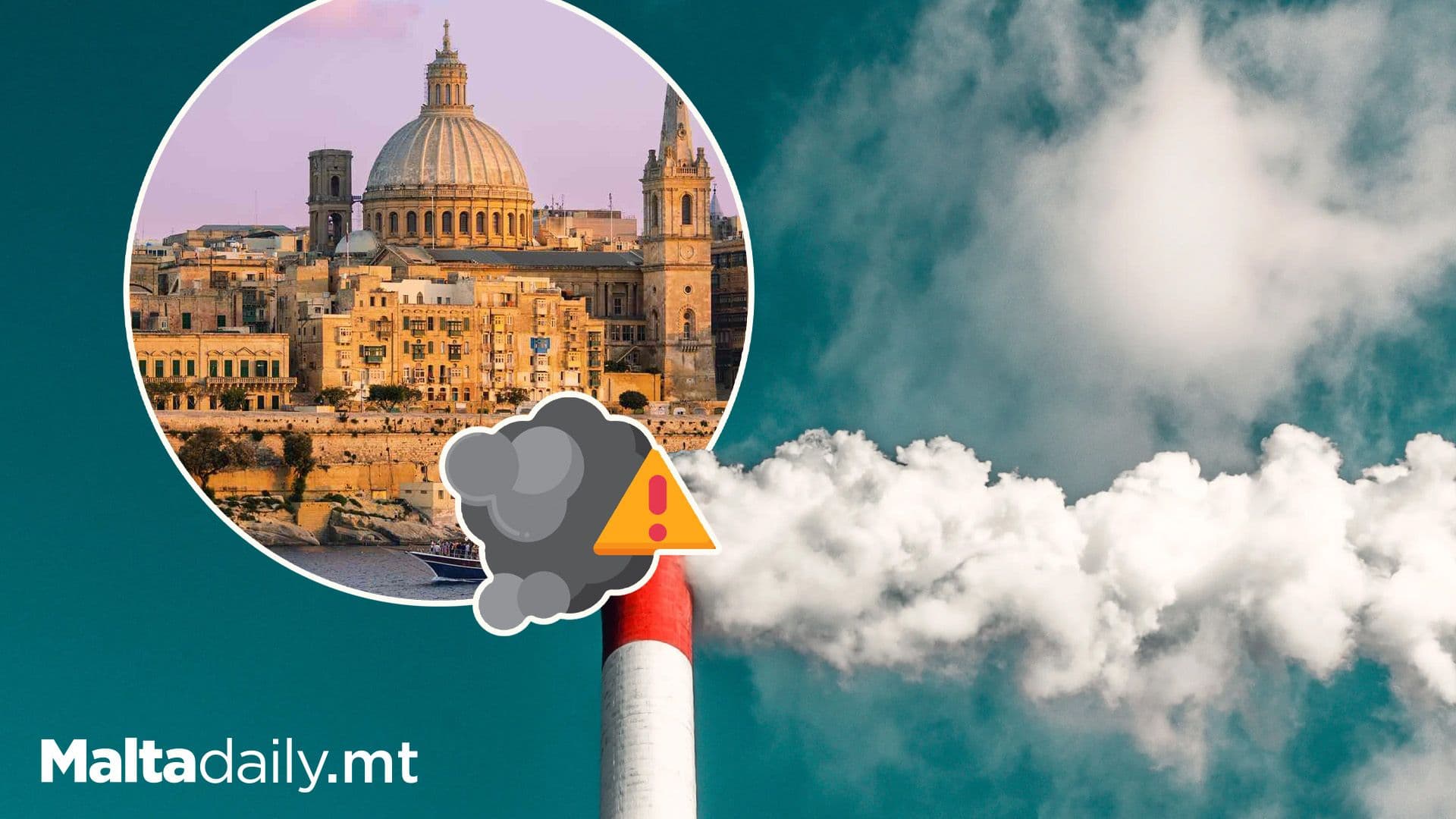Malta’s Air Polluted With Double The Recommended Amount

A recent report indicates that Malta’s air quality significantly exceeds World Health Organization (WHO) guidelines, with fine particle levels more than double the recommended threshold.
These particles, measuring just 2.5 millionths of a metre, pose severe health risks, including asthma, cancer, and cardiovascular diseases, primarily due to their easy absorption into the lungs and bloodstream.
Malta ranks 49th out of 134 countries in terms of air quality, with an average PM2.5 concentration of 12 micrograms per cubic meter in 2023.
Comparatively, French Polynesia boasts the cleanest air worldwide, while Bangladesh suffers from extremely high pollution levels.
In Europe, Malta ranks 26th, with Iceland leading in air quality and Bosnia Herzegovina having the poorest.
Despite consistent pollution levels since 2018, Malta’s efforts to improve air quality have shown little success amidst rampant construction and increased car usage, both of which continue unabated.
Census data underscores the construction boom, with dwellings increasing by a third between 2011 and 2021, far outpacing population growth. These findings underscore the urgent need for Malta to address its air pollution crisis amidst ongoing urban development and transportation challenges.
#MaltaDaily


